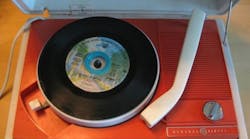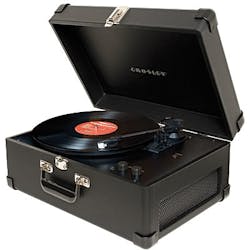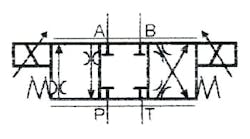This amused me, because both of these boys were less than ten years old, so they probably had never even seen a record, much less heard a broken one. I concluded that one of their parents used this term from time to time, and they adopted the term after hearing it frequently.
This isn’t unusual, because most words we all use were just picked up from conversation. We were coached along the way, but no one actually taught us to talk. This is fine for informal conversation. If someone misuses a term, dire consequences generally don’t result. For example, I once heard a crtic say, “Her performance was so spellbinding, she literally held the audience in the palm of her hand.” Either the performer had a hand the size of Godzilla’s, or the audience consisted of ants. Of course, the critic meant figuratively, not literally, but I guess she thought literally sounded intelligent.
Perhaps I’m nit picking — figuratively, of course. However, after becoming a technical editor years ago, it was drilled into me (figuratively, of course) that we must write what we mean. Sure, some of the best lessons are learned though experience. But the best way to gain a thorough understanding of a subject is through professional training. After all, think about where you’d be today if all you knew about the birds and bees was what you learned from your buddies in grade school.



